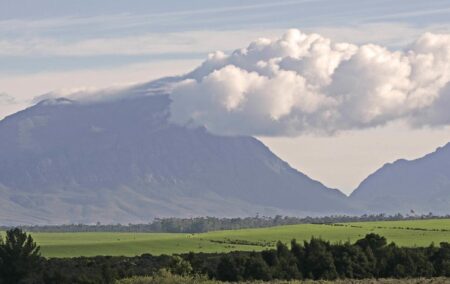Brian du Preez, a PhD student in botany at the University of Cape Town, stumbled on the Psoralea cataracta near a river on a Tulbagh farm, the plant having hitherto been known only from a single specimen collected in 1804.
After decades of fruitless searching, the plant was officially declared extinct in 2008.
From his experience as a volunteer with the Custodians of Rare and Endangered Wildflowers (CREW) in the Tulbagh district, Du Preez said he knew instantly what the plant was when he found it.
‘As soon as I saw those delicate thread-like flower stalks, I knew it was Psoralea cataracta,’ he told IOL.
This species of Fountain Bush of the pea family was long thought to have succumbed to the depredations of forestry and farming.
Du Preez’s find was confirmed by UK-based Professor Charles Stirton, an internationally recognised specialist on the genus Psoralea.
Stirton is quoted as saying: ‘This is a very important find as it shows how the Cape is still relatively unexplored in many mountainous areas. Given that many of the Cape Flora only come up briefly after fires, fading quickly, and that sometimes these fires are irregular, the chances of being in an area at the right time is slim. Well done to Brian for a wonderful find.’
Remarkably, in 2016, Du Preez – then a BSc Honours student at Stellenbosch University – rediscovered another long-lost species, Marasmodes schlechteri, which had last been seen in 1928 and was presumed to be extinct.


